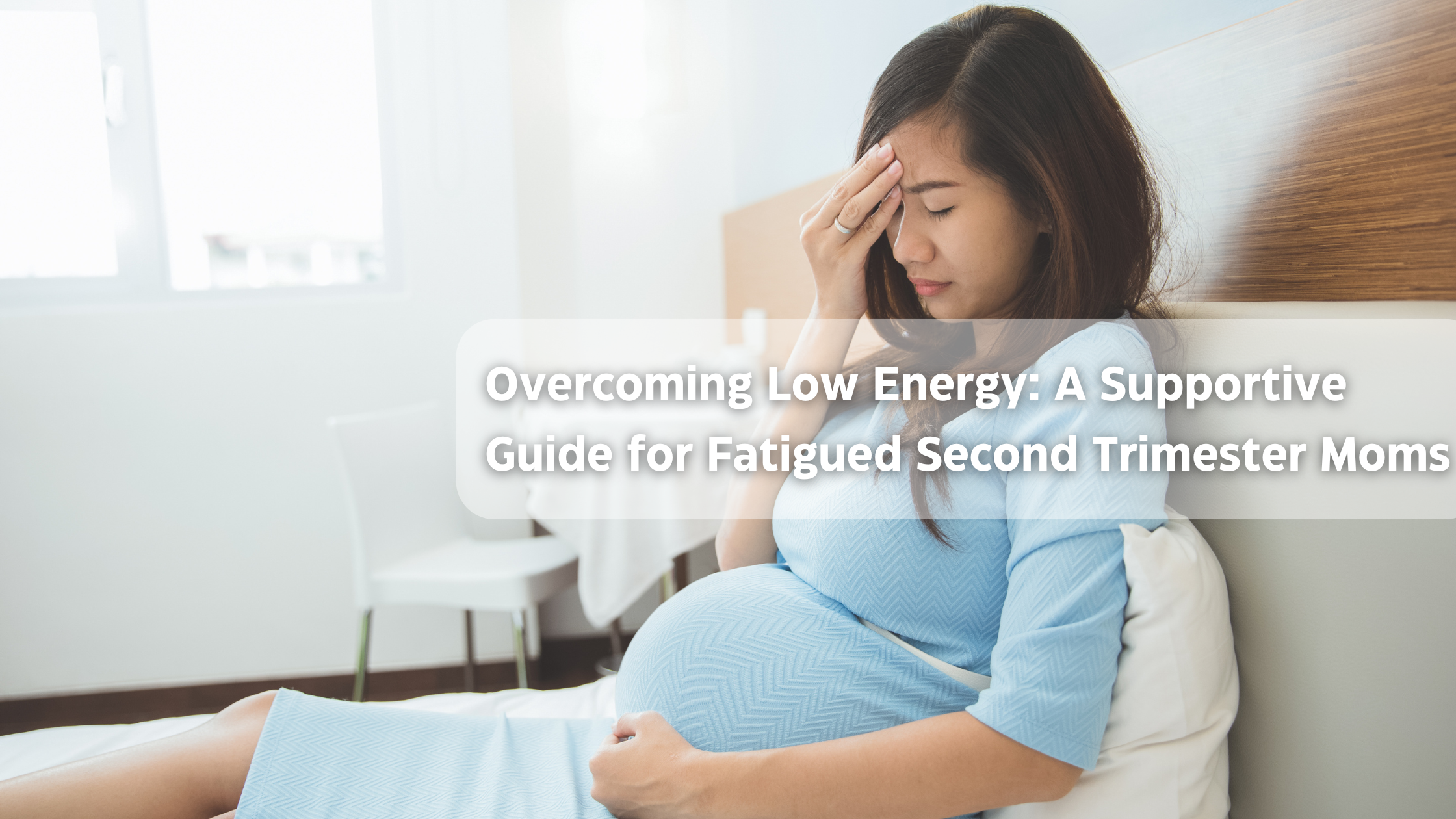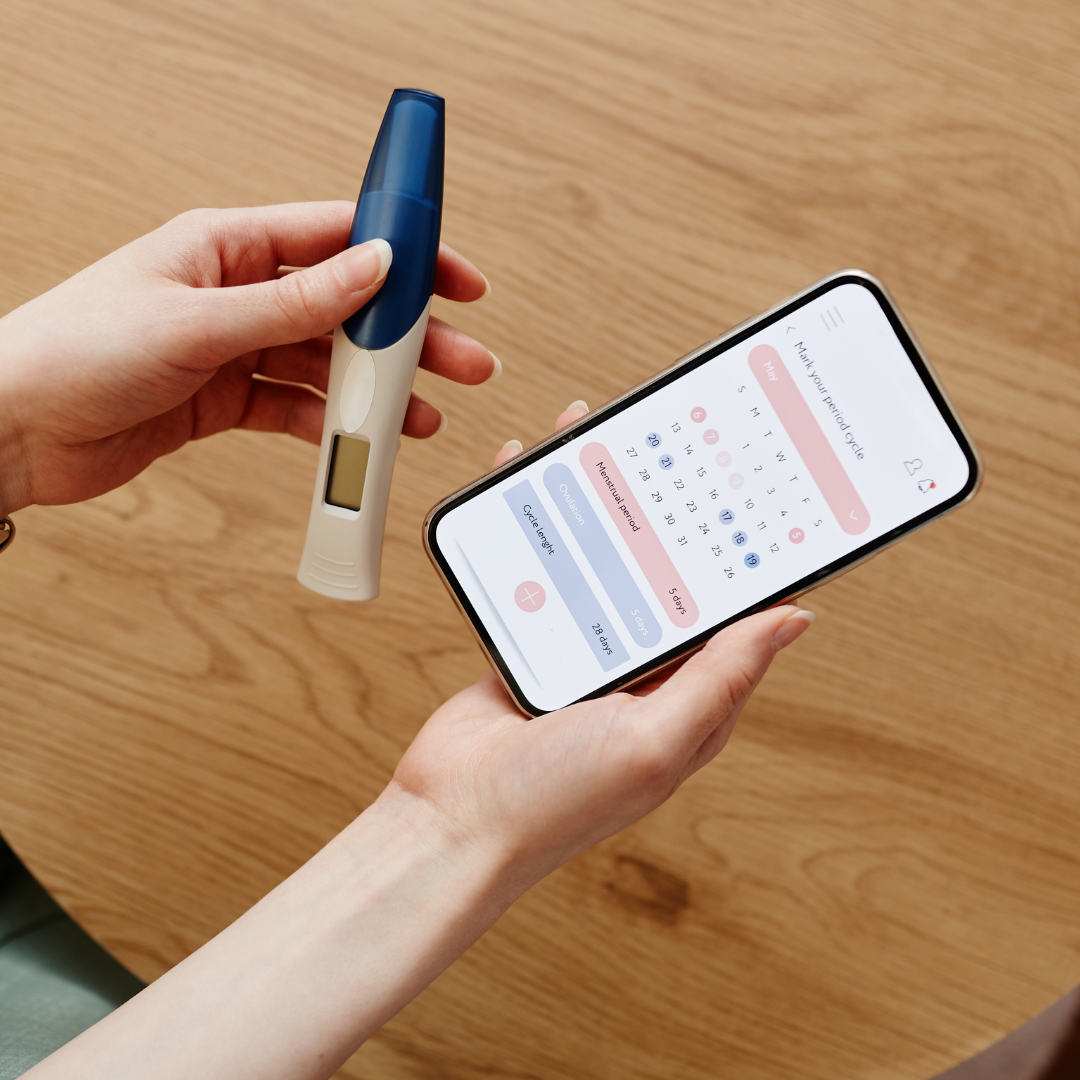Overcoming Low Energy: A Supportive Guide for Fatigued Second Trimester Moms
UNDERSTANDING LOW ENERGY IN THE SECOND TRIMESTER: CAUSES AND EFFECTS

THE SCIENCE BEHIND FATIGUE IN PREGNANCY
Fatigue during pregnancy, especially in the second trimester, is very common and there’s real science behind it. Your body is working overtime to support your growing baby. Rising progesterone levels can make you feel sleepy, while increased blood volume forces your heart to pump harder. At the same time, your body is using extra energy to build the placenta and support fetal development. Plus, as your baby grows, added weight makes everyday tasks feel more exhausting. All these changes combined can leave expectant moms feeling more tired than usual.
COMMON CAUSES OF LOW ENERGY IN THE SECOND TRIMESTER
- Sleep Disturbances
As your belly grows, finding a comfortable sleeping position becomes more challenging. Interrupted sleep or frequent nighttime awakenings can leave you feeling tired and unrested during the day.
- Nutritional Needs
Your body requires more nutrients during pregnancy to support both you and your growing baby. Without a well-balanced diet, especially rich in iron, protein, and flour, low energy is a common result.
- Anemia (Iron Deficiency)
Iron deficiency is common in pregnancy and can lead to anemia. This condition reduces the amount of oxygen your blood can carry, often causing fatigue, dizziness, and weakness.
- Stress and Anxiety
Pregnancy can bring emotional stress and anxiety, whether it’s about the health of the baby, body changes, or labor. Mental stress can quickly translate into physical exhaustion.
- Dehydration
Not drinking enough water affects your body's ability to function efficiently. Even mild dehydration can cause fatigue, headaches, and a drop in energy levels.
- Hormonal Changes
Increased levels of hormones like progesterone can make you feel unusually sleepy or lethargic. These changes are natural but can significantly impact your daily energy.
- Physical Discomfort
Discomfort such as back pain, leg cramps, or pressure in the pelvis can disrupt your sleep and make physical activity more tiring, contributing to an overall sense of fatigue.
COPING STRATEGIES FOR TIRED SECOND TRIMESTER MOMS
Embracing a Healthy Diet and Lifestyle
Maintaining energy during pregnancy starts with a balanced diet and healthy habits. Eating small, frequent meals helps stabilize blood sugar, while including protein and complex carbs in each meal provides steady, long-lasting energy. Staying hydrated is essential, and limiting caffeine supports better sleep. Healthy snacks like fruits and nuts can give quick energy boosts throughout the day. Beyond diet, sticking to a regular sleep schedule, practicing good sleep hygiene, and taking short power naps can make a big difference. Every pregnancy is different, so it’s important to listen to your body and adjust your routine to what feels best for you.

The Role of Regular Exercise and Rest
Even when you're feeling tired, regular exercise can help boost your energy during pregnancy. It improves circulation, supports muscle tone, and releases endorphins that naturally lift your mood. Safe options for second trimester moms include walking, swimming, prenatal yoga, stationary cycling, and light strength training. These gentle activities keep you active without putting strain on your body but always check with your doctor before starting anything new. Just as important as movement is rest. Aim for 7–9 hours of sleep each night, take breaks during the day, and listen to your body’s signals. Striking the right balance between exercise and rest is key to managing fatigue and staying well throughout your pregnancy.
Leveraging Support Systems and Community Resources
Don’t be afraid to ask for help when your energy is running low leaning on your support system can make a big difference. Whether it’s getting assistance with household chores from family or friends, joining a prenatal support group, or even hiring help for cleaning or meal prep, every bit of support counts. Communicate openly with your partner about how you’re feeling, and don’t hesitate to ask for flexibility at work if needed. Community resources like prenatal classes, support services from your healthcare provider, or online mom communities can also offer encouragement and guidance. Remember, it’s not a weakness to ask for help, it’s a wise and empowering step toward taking care of both you and your baby.

ADDITIONAL SUPPORT AND RESOURCES FOR MANAGING LOW ENERGY
Apps and Tools to Track Energy Levels
-
Pregnancy Tracking Apps
These apps help you monitor your baby's development and your own health. Many also let you log symptoms, track energy levels, and get reminders for appointments or vitamins. -
Sleep Tracking Apps
Quality sleep is essential in pregnancy. Sleep trackers can help you understand your sleep patterns and suggest improvements for better rest like adjusting bedtime or limiting screen time. -
Nutrition Apps
Maintaining a balanced diet supports energy. These apps help you track what you eat, ensure you’re getting key nutrients (like iron and folate), and manage cravings more mindfully. -
Fitness Trackers
Light exercise is great for boosting energy and mood. A fitness tracker helps you monitor daily activity, set achievable goals, and avoid overexertion. -
Meditation & Mindfulness Apps
Mental rest matters too. Guided meditation apps offer breathing techniques, stress relief exercises, and calming audio to help you relax, recharge, and sleep better.

How to Communicate with Your Health Care Provider
Open communication with your healthcare provider is essential during pregnancy, especially when you're experiencing fatigue. Keeping a journal of your energy levels and symptoms can help you identify patterns and provide useful insights during check-ups. Come prepared with questions and be honest about how your tiredness is affecting your daily life. If something feels off, don’t wait to reach out between appointments. Your doctor can recommend safe supplements or treatments to support your energy. Remember, your provider is there to help, so never hesitate to speak up and ask for what you need.
Exploring Complementary Therapies and Support Groups
Complementary therapies can be a helpful way to manage pregnancy fatigue. Prenatal massage may relieve muscle tension and promote better sleep, while acupuncture can boost energy for some women. Aromatherapy using energizing scents and mindfulness practices can also reduce stress and improve overall well-being. Always check with your healthcare provider before trying these options. In addition, joining prenatal support groups either locally or online provides emotional support, practical advice, and a sense of community. Remember, you’re not alone, and connecting with others can make this journey easier.

